Intel claims the Core i9 12900K is the 'world's best gaming processor' but has to retest Ryzen
It's not all said and done yet, as Intel needs to retest AMD's Ryzen 9 5950X on Windows 11.
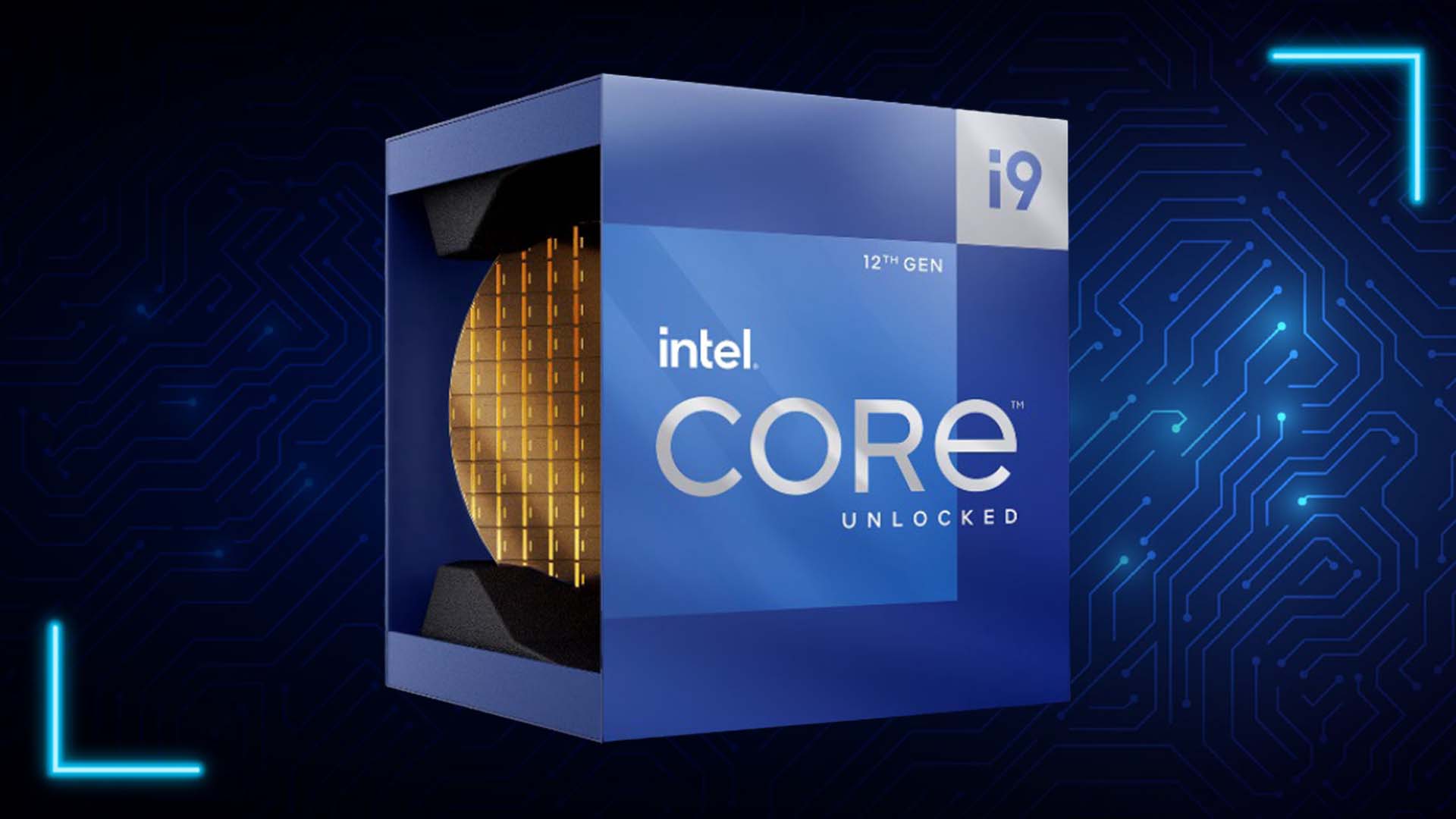
Intel claims its upcoming Alder Lake processor, the Core i9 12900K, has what it takes to claim the "world's best gaming processor" title. It's even provided graphs to prove it. Though, these do come with one big caveat today: Intel hasn't yet tested AMD's Ryzen 9 5950X on Windows 11 post-performance patch.
The chip in question is the best of the 12th Gen lot, the Core i9 12900K. This lays claim to eight Performance Cores and eight Efficient Cores, which totals 24 threads once HyperThreading is factored in (those E-cores don't offer up HyperThreading). It's also capable of reaching a maximum Turbo clock of 5.2GHz.
That's going up against AMD's excellent Ryzen 9 5950X, which is a 16-core, 32-thread processor built on the Zen 3 architecture.
And Intel says it has the lead when it comes to gaming, and has shared with us a handful of 1080p gaming benchmarks to prove it, which you can check out below. That said, it's important as ever not to rely too heavily on benchmark disclosures such as this, which come ahead of independent testing.
"We can't obviously create the 'world's best gaming processor' without talking about competition," Marcus Kennedy, GM at Intel says, "and so we believe that we can make this claim because our 12th Generation Intel Core i9 12900K scored better than our competitors in the majority of those 31 game titles that we tested."
The biggest caveat to these performance figures is that Intel has not tested the AMD Ryzen 9 5950X system on Windows 11 with a recent patch, which caused most AMD CPUs to "exhibit reduced performance in certain applications when running Windows 11." A pretty big deal, then.
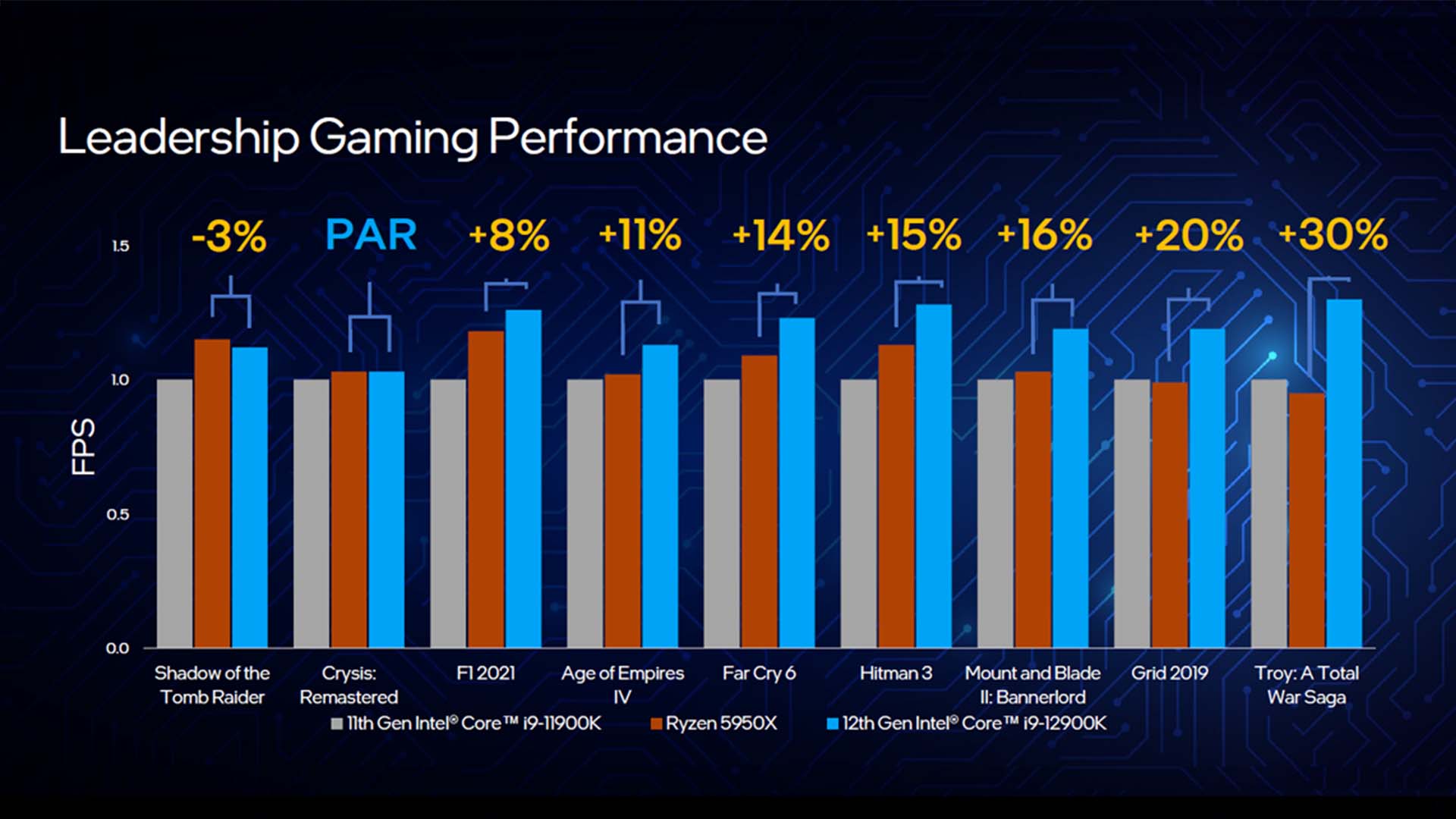
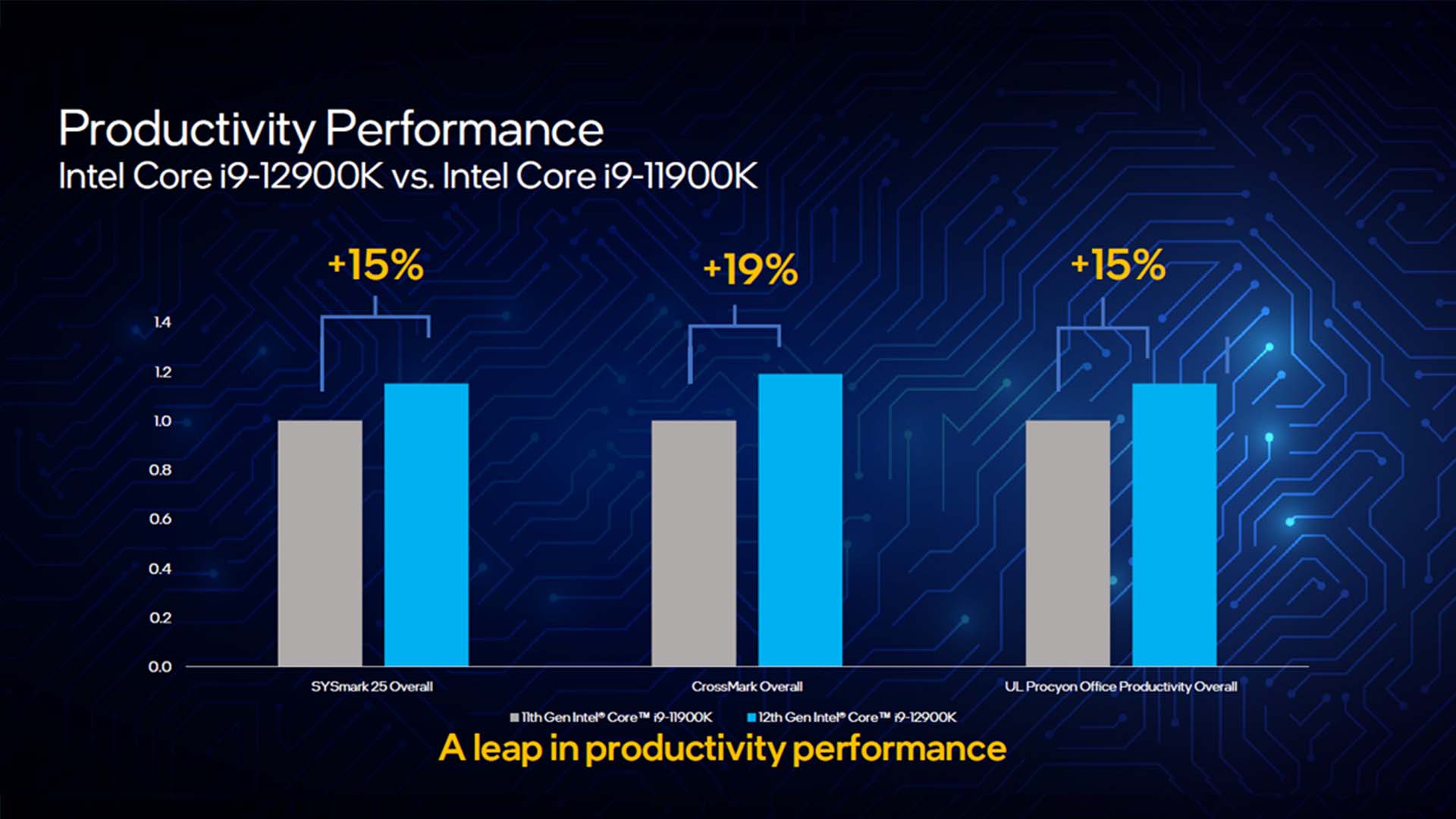
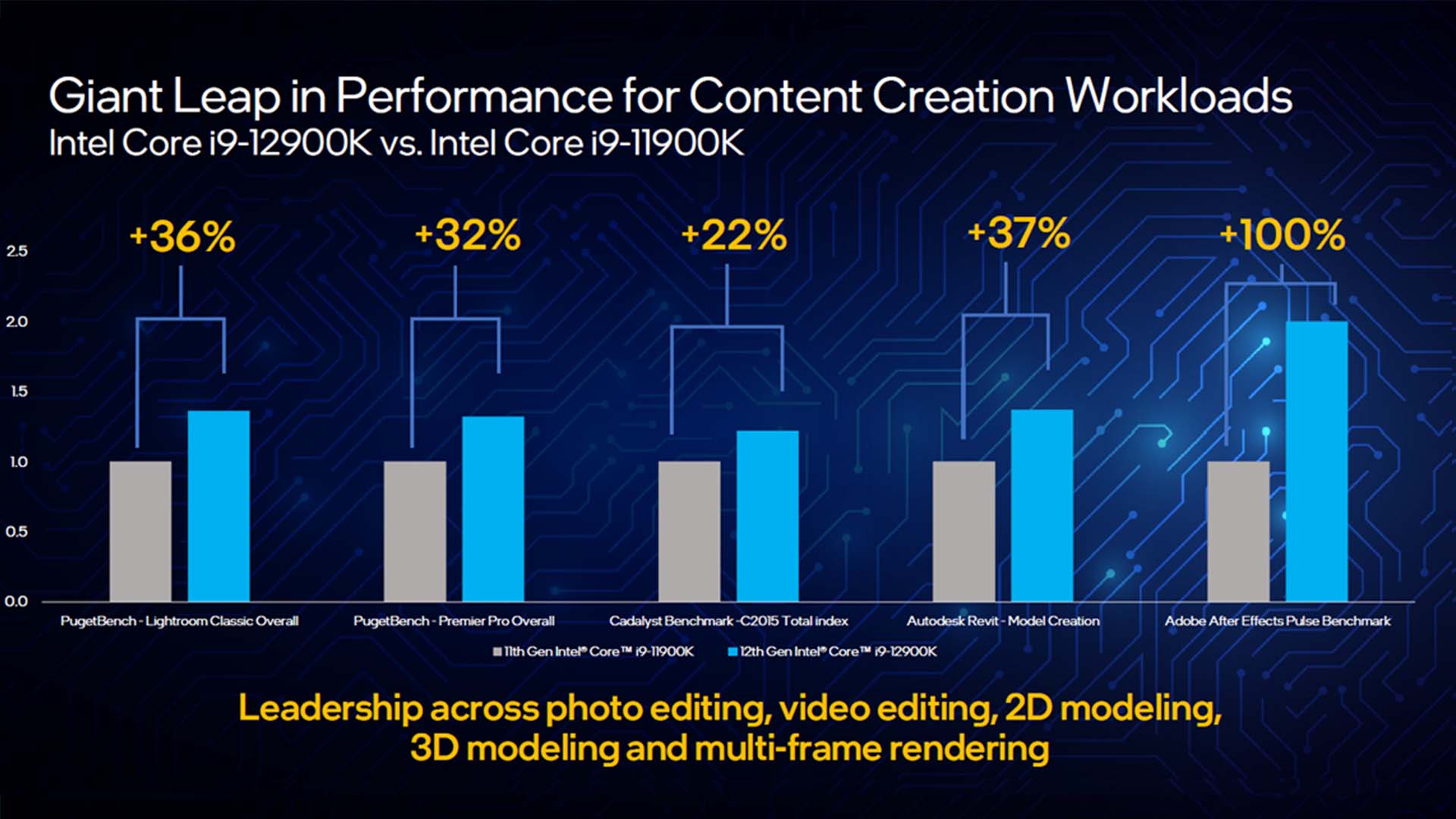
Luckily, fixes for two of the performance issues are now available, and "AMD has verified that the performance and behavior of compatible AMD processors are working as intended on Windows 11 subsequent to the installation of these updates."
Keep up to date with the most important stories and the best deals, as picked by the PC Gamer team.
Intel says it is still confident in its claim, despite not having tested AMD's system on Windows 11 at its full potential, and that it will still retain the gaming crown even once it has. Perhaps in fewer games, though, by the looks of how close it is in some of its selected benchmarks.
"We realise there's going to be a Windows 11 software update coming soon," Kennedy says during the pre-recorded briefing. "Once that software is released, we're going to remeasure all the games, including the esport titles in our gaming test suite, and we're going to nominate our gaming performance leadership based on that new run. Once we have that data, we promise we'll share all of our findings with you, but that said, we are confident that even with the upcoming patch, we stand behind our claim."
Intel also says the Core i9 12900K would outperform the competition without the help of DDR5, which is a feather in the Alder Lake generation's cap that so far AMD hasn't matched.
In terms of both productivity and content creation, Intel believes it's onto a winner with Alder Lake and the 12900K. You can check those benchmarks out in the gallery above.
We won't have to wait long to find out where the chips fall this generation, anyways. From November 4 we can say with confidence whether Intel's hybrid approach will win over AMD's clever chiplets.
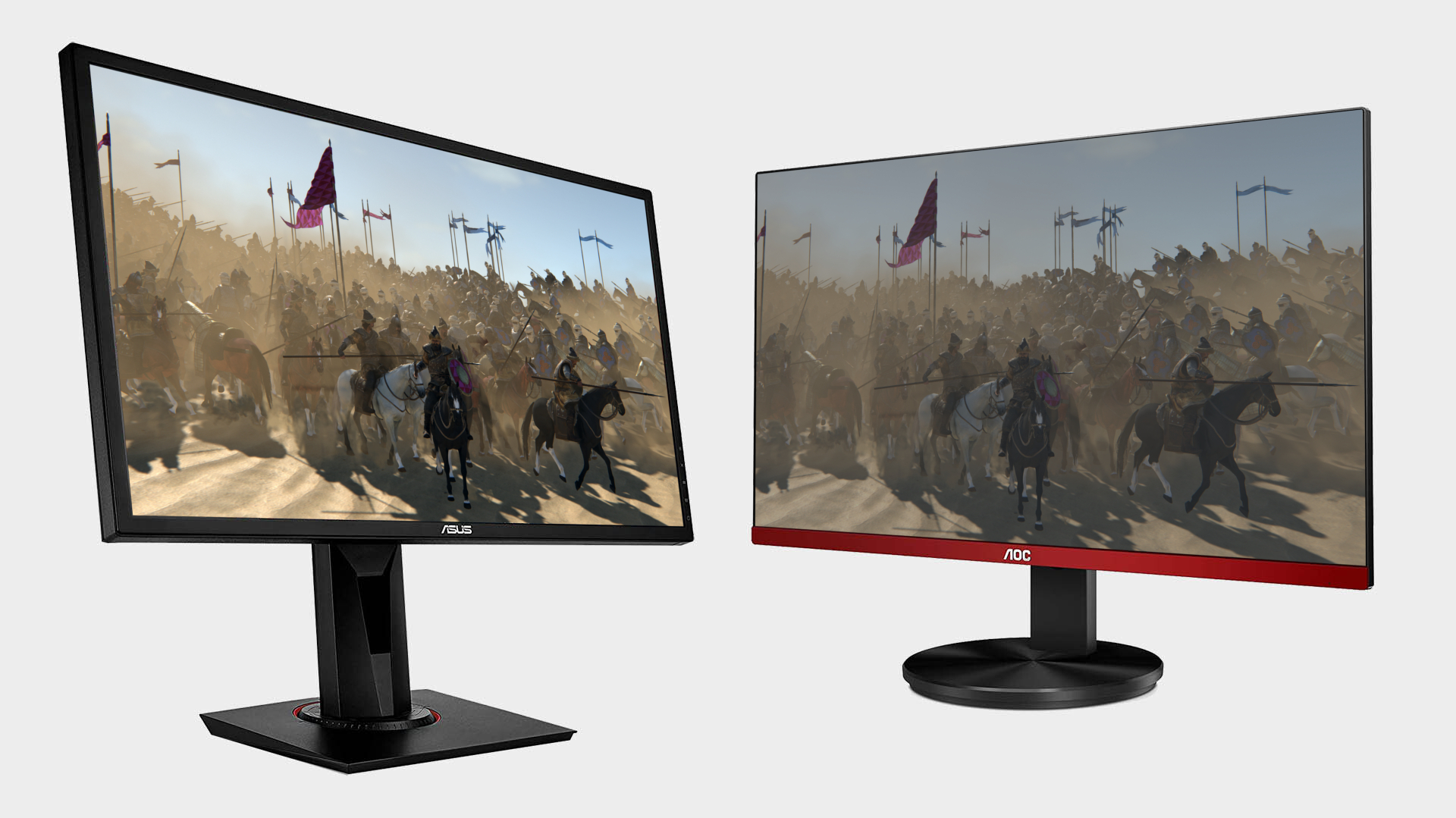
Best gaming monitor: pixel-perfect panels for your PC
Best high refresh rate monitor: screaming quick screens
Best 4K monitor for gaming: when only high-res will do
Best 4K TV for gaming: big-screen 4K PC gaming

Jacob earned his first byline writing for his own tech blog. From there, he graduated to professionally breaking things as hardware writer at PCGamesN, and would go on to run the team as hardware editor. He joined PC Gamer's top staff as senior hardware editor before becoming managing editor of the hardware team, and you'll now find him reporting on the latest developments in the technology and gaming industries and testing the newest PC components.

